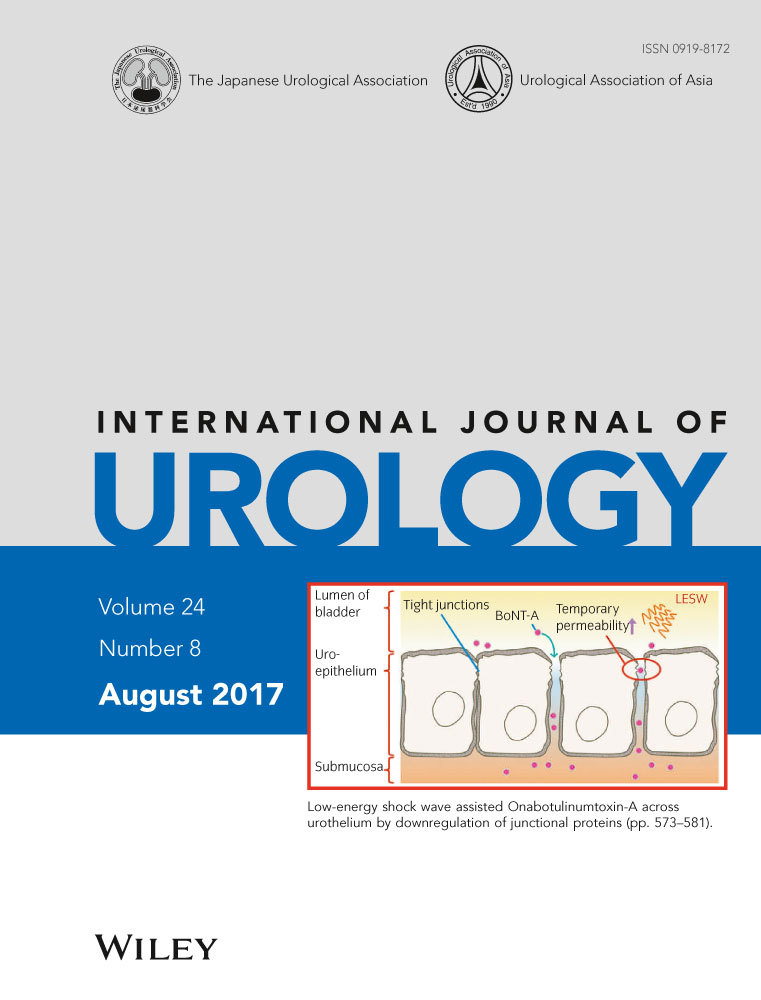Predictive value of different prostate-specific antigen-based markers in men with baseline total prostate-specific antigen <2.0 ng/mL
Abstract
Objectives
To investigate the predictive value of various molecular forms of prostate-specific antigen in men with baseline prostate-specific antigen <2.0 ng/mL.
Methods
The case cohort comprised 150 men with a baseline prostate-specific antigen level <2.0 ng/mL, and who developed prostate cancer within 10 years. The control cohort was 300 baseline prostate-specific antigen- and age-adjusted men who did not develop prostate cancer. Serum prostate-specific antigen, free prostate-specific antigen, and [−2] proenzyme prostate-specific antigen were measured at baseline and last screening visit. The predictive impact of baseline prostate-specific antigen- and [−2] proenzyme prostate-specific antigen-related indices on developing prostate cancer was investigated. The predictive impact of those indices at last screening visit and velocities from baseline to final screening on tumor aggressiveness were also investigated.
Results
The baseline free to total prostate-specific antigen ratio was a significant predictor of prostate cancer development. The odds ratio was 6.08 in the lowest quintile baseline free to total prostate-specific antigen ratio subgroup. No serum indices at diagnosis were associated with tumor aggressiveness. The Prostate Health Index velocity and [−2] proenzyme prostate-specific antigen/free prostate-specific antigen velocity significantly increased in patients with higher risk D'Amico risk groups and higher Gleason scores.
Conclusions
Free to total prostate-specific antigen ratio in men with low baseline prostate-specific antigen levels seems to predict the risk of developing prostate cancer, and it could be useful for a more effective individualized screening system. Longitudinal changes in [−2] proenzyme prostate-specific antigen-related indices seem to correlate with tumor aggressiveness, and they could be used as prognostic tool before treatment and during active surveillance.




